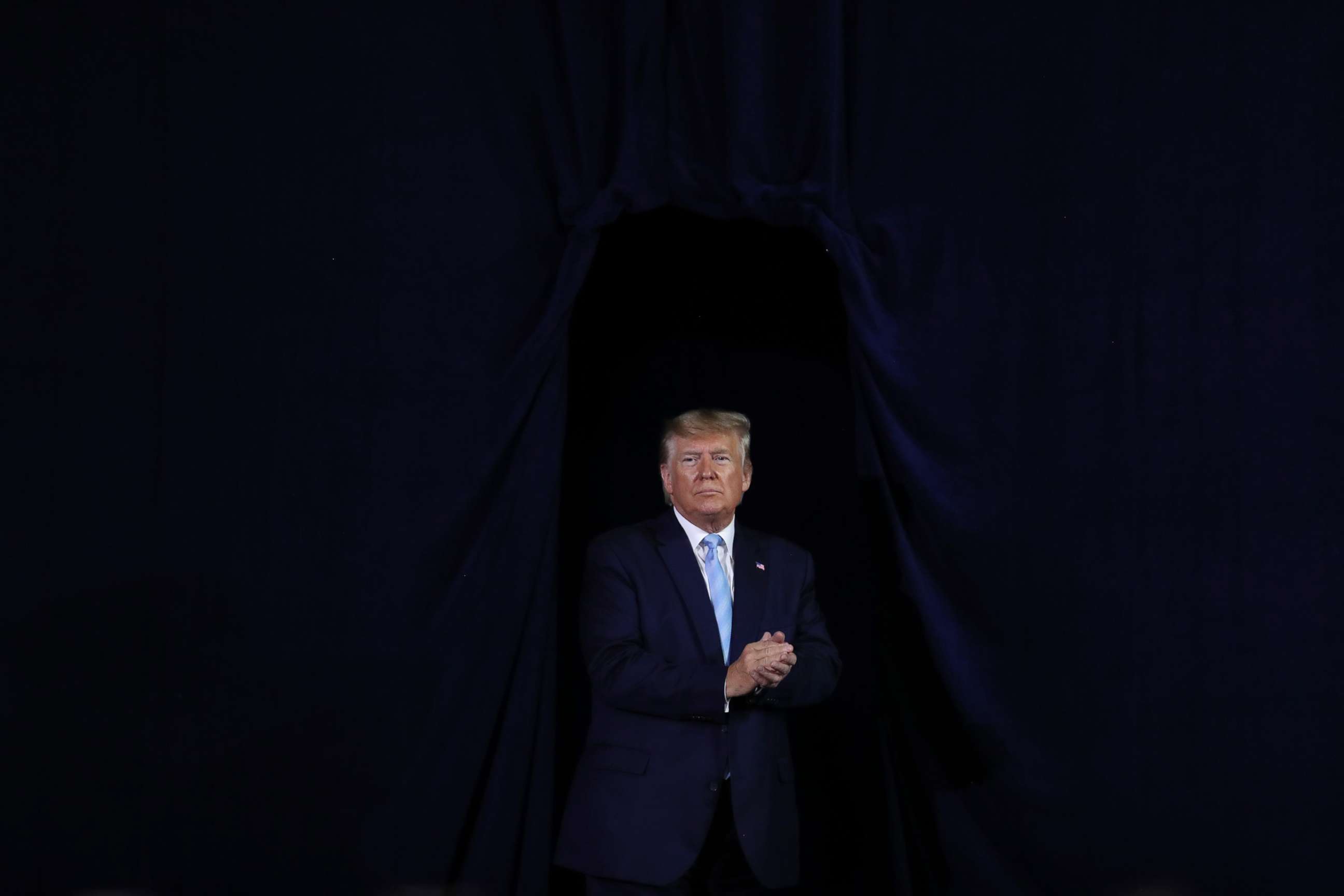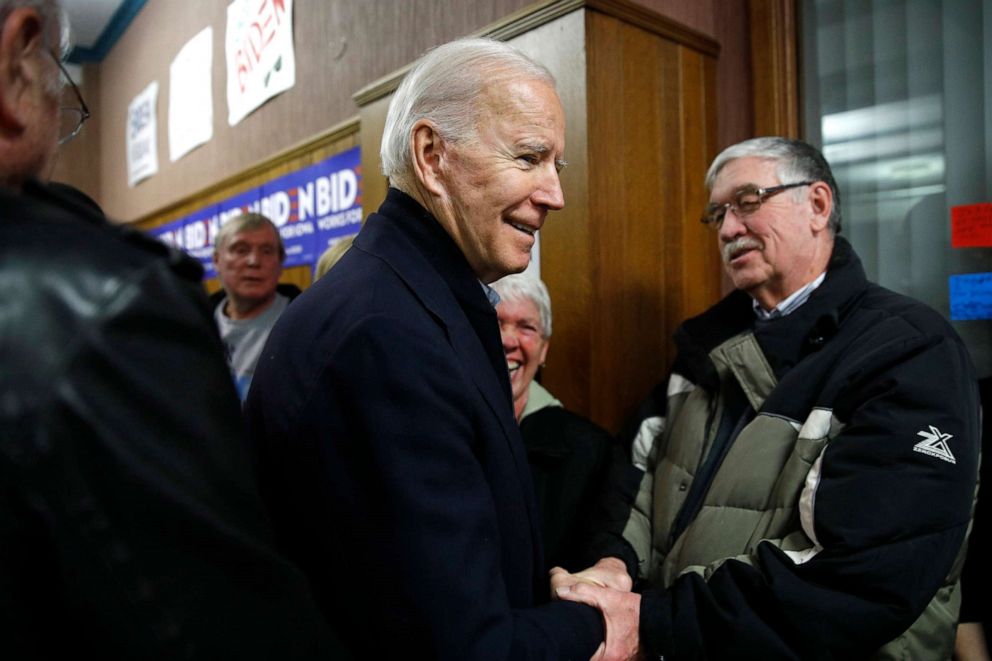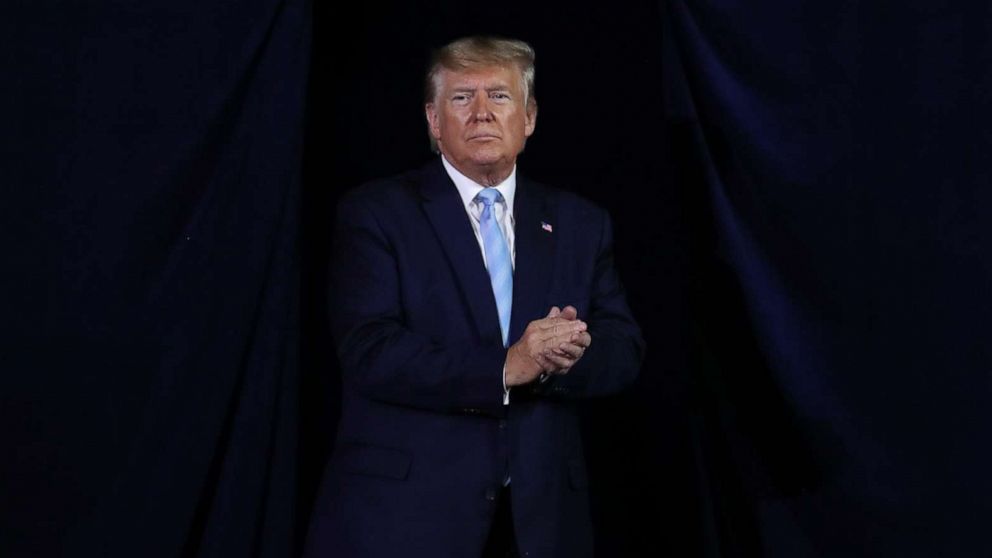The Note: Iran and Iraq present fresh challenges to 2020 candidates
The TAKE with Rick Klein
Iran and Iraq are back. The reemergence of familiar issues brings new challenges for both President Donald Trump and the candidates who want to replace him.
Trump’s decision to kill a top Iranian official on Iraqi soil has already had significant consequences. The president may get his wish of getting the United States out of Iraq, just not under the terms he envisioned -- to say nothing of possible reprisals from Iran.

As for the Democrats, issues that have played a significant role in every competitive caucus season since 2004 return with fresh twists. A window may open for an anti-war voice in Iowa, political terrain where that’s been welcome in the past.
The focus on Iran and Iraq highlights decades-old positions and decision points for former Vice President Joe Biden and former Mayor Michael Bloomberg.
Sen. Bernie Sanders gets a chance to contrast his record -- including voting against the Iraq War in 2002 -- and his initial responses with both Biden and Sen. Elizabeth Warren.
Former Mayor Pete Buttigieg can tout his military record, though he and his rivals get a commander-in-chief test that includes a vocabulary section -- at least when it comes to the word “assassination.”
The final month of pre-election campaigning was already in danger of being overshadowed by impeachment. Now comes what could be a bigger issue for Democratic voters, one with potentially grave national-security consequences.
The RUNDOWN with MaryAlice Parks
Former Vice President Joe Biden picked up three telling endorsements over the weekend from Reps. Elaine Luria (VA-2), Chrissy Houlahan (PA-6), and Conor Lamb (PA-17). All three freshman Democratic members of Congress replaced Republicans in their home districts and all also have national security and military experience.
Virginia has moved decidedly blue the last two election cycles, though the large state holds key primary race delegates up for grabs on Super Tuesday.
Pennsylvania is arguably even more crucial battleground turf for both the primary and the general election.

Luria and Lamb are both considered frontline Democratic, priority protection, for their party this cycle.
Though endorsements are unlikely to swing any undecided voters, the announcement from the members of congress underscores that many Democratic party members, especially the fiscally moderate ones, still view Biden as a needed consensus-builder.
“I believe that the next President must attempt to unify this country. President Trump has only driven people further apart. Joe Biden has promised to try, above all, to bring people together,” Lamb wrote while making his endorsement.
The TIP with Sasha Pezenik and Cheyenne Haslett
The strike on Qassem Soleimani has quickly cleaved a fault line among the 2020 Democratic candidates: a first testing ground for how they'd respond to potential foreign policy crises as president. And for Sen. Elizabeth Warren of Massachusetts, that test was met with some criticism. Warren drew heat for focusing on Soleimani, vilifying him as a “murderer” rather than railing against escalation in the Middle East of any kind, as Sen. Bernie Sanders had.
Progressive supporters backing Warren were uncomfortable with her initial response, upset with its centrist thrust and dearth of the “big, bold, structural” stances that won them to her side, multiple sources told ABC News. By the next day, her rhetoric showed a clear U-turn: calling the strike an “assassination,” as Sanders had already done.
Warren made rare Sunday show appearances this weekend -- her first as a presidential candidate, in fact -- and continued to attack and criticize President Trump without mentioning Soleimani. Her fluctuating rhetoric harkens back to notorious past political shifts like Medicare for All -- an issue she has also struggled to find her own lane on, particularly from Sanders.
It is possible Warren’s tightrope walk between stances may come with a cost as voters ask at the end of the 2020 trail, where exactly does she stand?

THE PLAYLIST
ABC News' "Start Here" Podcast. Monday morning’s episode features ABC News Foreign correspondent Ian Pannell in Erbil, Iraq, who brings us the latest fallout from last week’s drone strike which killed top Iranian general Qassim Soleimani. Then, ABC News contributor and retired Col. Stephen Ganyard walks us through the many national security implications of the strike, and tells us what Iran may be thinking when it comes to potential retaliation. And, ABC News’ Trish Turner tees up a busy week in the Senate as lawmakers decide how to react to the strike and impeachment trial negotiations. http://apple.co/2HPocUL
WHAT YOU NEED TO KNOW TODAY
Download the ABC News app and select "The Note" as an item of interest to receive the day's sharpest political analysis.
The Note is a daily ABC News feature that highlights the key political moments of the day ahead. Please check back tomorrow for the latest.




